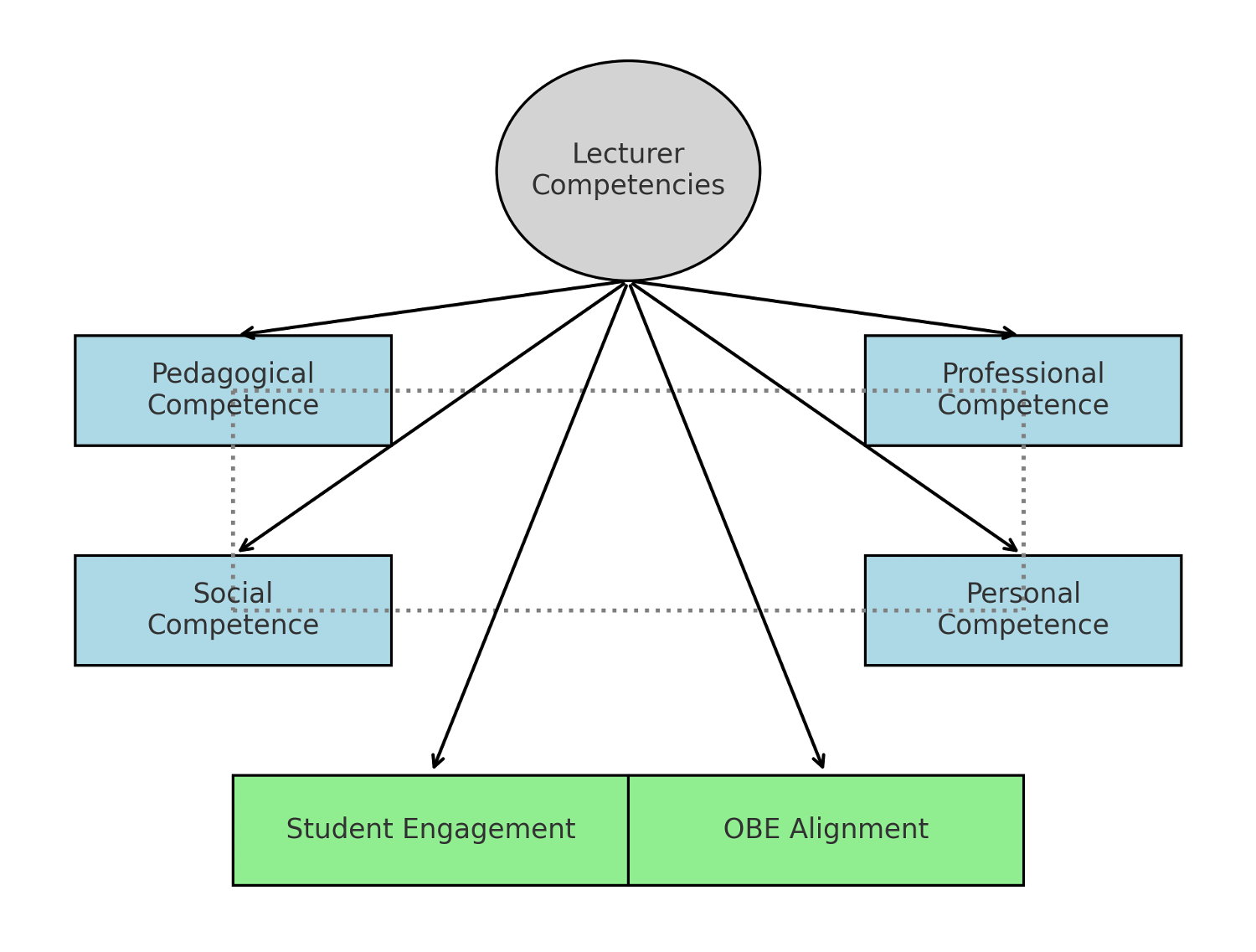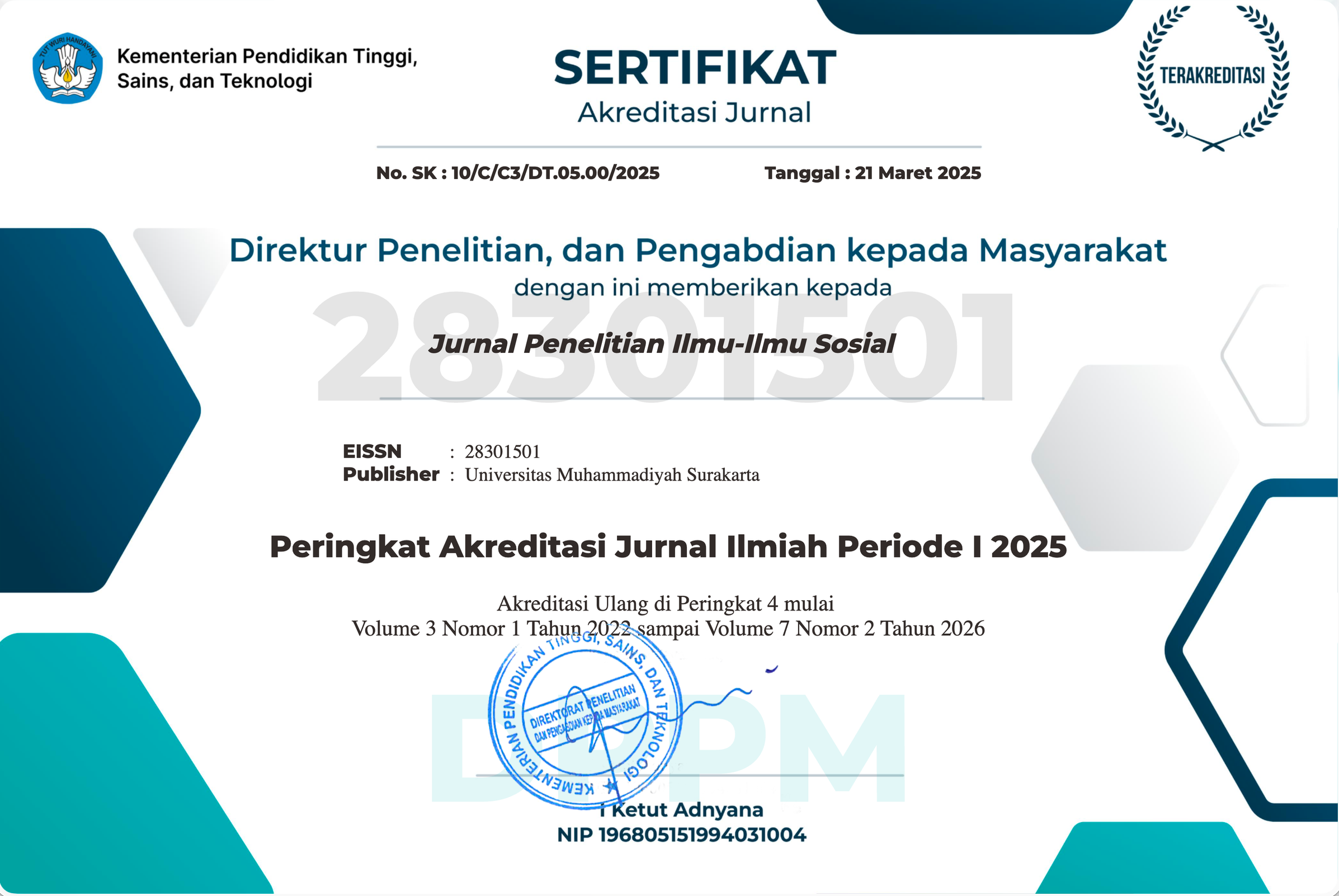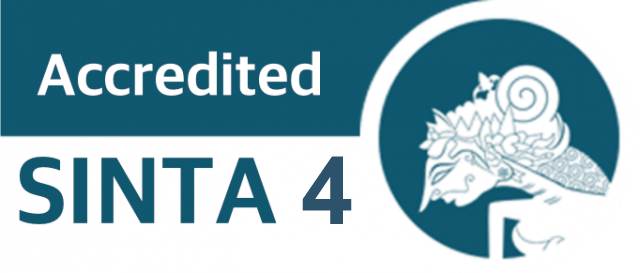An Analysis of Lecturers’ Competencies Based on Students’ Perceptions: A Mixed Methods Approach
DOI:
https://doi.org/10.23917/sosial.v6i2.12508Keywords:
higher education, lecturer competence, mixed methods, outcome-based education, student perceptionAbstract
This study aims to evaluate lecturer competencies at Universitas Primakara based on student perceptions, addressing the need for enhanced teaching quality in Indonesian higher education amid global competitiveness demands. Employing a mixed-methods convergent parallel design, data were collected from 268 students using a four-point Likert-scale questionnaire assessing pedagogical, professional, social, and personal competencies, supplemented by open-ended responses for qualitative insights. Quantitative results indicate high competency ratings, with professional (mean = 3.80, SD = 0.45) and personal (mean = 3.70, SD = 0.48) domains leading, followed by social (mean = 3.60, SD = 0.52) and pedagogical (mean = 3.55, SD = 0.50). Qualitative themes reveal strengths in subject mastery and integrity but highlight needs for innovation in teaching methods, practical relevance, and digital engagement. These findings contribute to the field by integrating student perspectives into a comprehensive competency model, supporting Outcome-Based Education (OBE) implementation. Implications include targeted professional development in project-based learning and digital tools, offering a practical framework for improving lecturer training and aligning with global educational standards.
Downloads
References
Alam, H. S., Artani, K. T. B., & Sudama, M. (2024). Penguatan Proyek Kreatif dan Kewirausahaan (PKK) Pelajar Sekolah Menengah Kejuruan (SMK) Negeri 1 Sukawati. Empowerment, 7(3), 292–302. https://doi.org/10.25134/empowerment.v7i03.10816
Alam, H. S., Suaryani, N., Ayunovi, W., Astawa, D., Dahana, B., & Ngurah A. G. B. (2025). Penggunaan Figma dalam Meningkatkan Kreativitas Siswa Sekolah Menengah Kejuruan Rekayasa. Empowerment: Jurnal Pengabdian Masyarakat, 8(01), 96-104. https://doi.org/10.25134/empowerment.v8i01.11712
Astina, M. A., Artani, K. T. B., & Alam, H. S. (2023). Workshop Kurikulum Merdeka di SMK Singamandawa. Jurnal Abdi Masyarakat, 3(2), 166–172. https://doi.org/10.22334/jam.v3i2.60
Braun, V., & Clarke, V. (2008). Using Thematic Analysis in Psychology. Qualitative Research in Psychology, 3(2), 77–101. https://doi.org/10.1191/1478088706qp063oa
Creswell, J. W., & Plano Clark, V. L. (2018). Designing and Conducting Mixed Methods Research (3rd ed.). SAGE Publications.
Darling-Hammond, L., Hyler, M. E., Gardner, M. (2017). Effective Teacher Professional Development. Palo Alto, CA: Learning Policy Institute.
Dewi, E. G. A., Alam, H. S., & Redioka, A. A. N. (2023). Efektivitas PBL dengan Pendekatan Flipped Learning dalam Mata Kuliah Bahasa Inggris. JIIP-Jurnal Ilmiah Ilmu Pendidikan, 6(8), 5847–5853. https://doi.org/10.54371/jiip.v6i8.2182
Elfindri, E., Rustad, S., Nizam, N., & Dahrulsyah, D. (2015). Lecturer Performances in Indonesia Higher Education System. IJAEDU- International E-Journal of Advances in Education, 1, 26-36. DOI:10.18768/IJAEDU.09134
Hackett, J., Bang, M., Goulter, A., & Batista, M. (2019). Crossing Risky Boundaries: Learning to Authentically and Equitably Co-Teach Through Design and Practice. Teaching and Teacher Education, 86, 102889. https://doi.org/10.1016/j.tate.2019.102889
Hiswara, A., Sawitri, N. N., Hapzi, H., & Rony, Z. T. (2023). Lecturer’s Performance in Java Island in Review of Organizational Culture, Management Effectiveness and Organizational Commitment. West Science Interdisciplinary Studies, 1(11). https://doi.org/10.58812/wsis.v1i11.395
Jennings, P. A., & Greenberg, M. T. (2009). The Prosocial Classroom: Teacher Social and Emotional Competence in Relation to Student and Classroom Outcomes. Review of Educational Research, 79(1), 491–525. https://doi.org/10.3102/0034654308325693
Kapasheva, Z., Mirza, N., Shastsitka, I., Gemanova, Z., Makouchyk, A., & Umbetova, A. (2024). Modelling the Development of Pedagogical Competence in Higher Education Educators Amid the Digitization of The Contemporary World. Frontiers in Education, 9, https://doi.org/10.3389/feduc.2024.1360712
Mikušková, E. B., Verešová, M., Gatial, V., Badošek, R., & Kimplová, T. (2025). Professional Competencies, Motivation, Cognitive Abilities and Personality in Pre-Service Teachers. Frontiers in Education, 10. https://doi.org/10.3389/feduc.2025.1576918
Molla, A., Yayeh, M., & Bisaw, A. (2023). The Current Status of Faculty Members’ Pedagogical Competence in Developing 21st Century Skills at Selected Universities in Ethiopia. Cogent Education, 10(2). https://doi.org/10.1080/2331186X.2023.2228995
Odak, S., & Marušić, I. (2023). Teachers’ Social and Emotional Competencies: A Lever for Social and Emotional Learning in Schools. Sociologija i Prostor, 61(1), 67–83. https://doi.org/10.5673/sip.61.1.5
Ramli, R. (2014). Implementation and Impact of Teacher Certification Program in Indonesia (Perspective in Education). Lingua Scientia, Vol. 6, No. 2.
Rifaudin, A., Mujib, A., & Nugraha, E. (2024). The Urgency of Teacher Personality Competence in Modern Education. Education, Social Economics, and Technology, 4(2), 269. https://doi.org/10.33122/ejeset.v5i2.269
Saleh, Y.T. (2016). Sertifikasi untuk Meningkatkan Profesionalisme Guru. NATURALISTIC: Jurnal Kajian Penelitian dan Pendidikan dan Pembelajaran, Vol. 1, No. 1. DOI:10.35568/NATURALISTIC.V1I1.42
Setiana, S.M., Yukasih, I.M., Dirgandini, M., & Halibanon, D.S. (2023). The Effect of Lecturer Certification on Improving Teaching Performance: A Case Study of Japanese Language Lecturers in West Java. Proceeding of International Conference on Business, Economics, Social Sciences, and Humanities. DOI:10.34010/icobest.v4i.393
Star, J. R. (2023). Revisiting the Origin of, and Reflections on, Pedagogical Content Knowledge. Asian Journal for Mathematics Education, 2(2), 147–160. https://doi.org/10.1177/27527263231175885

Downloads
Submitted
Accepted
Published
Issue
Section
License
Copyright (c) 2025 I Made Sudama, I Wayan Diana Putra Adnyana

This work is licensed under a Creative Commons Attribution 4.0 International License.















